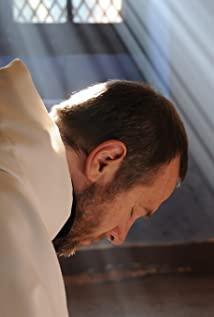love
In fact, at the beginning of the movie, what touched me the most was that Simon stayed with Pilar and his companions, and the purpose seemed to be to prove it to his ex-wife. (At the beginning of the film, Simon's ex-wife was arguing with the security guard and the manager in the supermarket to speak for refugees. Simon kept silent, and was later scolded by his ex-wife.) What he did was even a little naive, completely ignoring what it would bring him. On the second day of his stay in Bilal, his ex-wife came to the house, and Simon pretended to be nonchalant - it was nothing to stay with two Iraqi Kurds (in fact, it would bring him a lot of charges), and even deliberately exaggerated The number of days he took in the two refugees. In this regard, some people may at first think that Simon is hypocritical, and he lied in order to re-establish a compassionate and responsible image in front of his ex-wife. But that's not the case, what we see is a man who is about to lose his love at the end of his life, completely abandoning the thought and consideration of an adult, that is, Simon's blatant (he could have been more careful and more covert) ) Staying with two Kurdish refugees is like staying with two relatives and friends. (The "Kurdish" is emphasized several times in the film, which makes people question whether refugees are divided into three, six or nine?) Therefore, here Simon is the most idealistic person in the whole film. He is no longer limited by the concept of social identity. For him at this time the refugees (regardless of their origin) and he were just ordinary people. In this way, Simon is not purely to use the two refugees to create a sympathetic image - this seems to be very important to his ex-wife as a refugee relief volunteer, and it is also the main reason for their relationship conflicts and even the breakdown of their marriages. ——And just use actions to tell his ex-wife that he can be such a person, that he can be the kind of person his ex-wife wants. Moreover, Simon has been helping Bilal until the end, and more and more wholeheartedly, even at the end of the film, he went to England to find Bilal's girlfriend Mina and told her the news of Bilal's death. Sadly, Mina did not accept the ring in the end. (Simon gave Bilal the ring used to propose to Mina) It's not that Mina rejected Bilal, but Bilal's death took away the last hope, not to mention that even if Bilal finally The successful swim to England to meet Mina doesn't help Mina's status quo (marrying an uncle under her father's authority). Because everything is already doomed, just like Simon's ex-wife has long lost the ring, and their marriage is destined to come to an end, no matter how much Simon pays, it can't be undone. From this point of view, Simon's hard work and unrequited repayment, risking a crime to help Bilal to achieve his wish, is not because of his own efforts.
outside of love
The culprit behind this love tragedy is what the director really wants to convey: the current situation of refugees. And "the status quo of refugees" is the motive for creating a dramatic conflict between the two "loves" in this film. Just imagine, if the "refugees" are stripped away, the story of "love" will become mediocre. This is exactly where the director and the screenwriter create, using their "refugee" status and their predicament to tell a love tragedy. The latter wins the empathy of the vast majority of the audience and calls them to emotionally crusade against everything that makes the former, namely the state, the judiciary , war, personal... However, is "the current situation of refugees" really responsible for the "tragedy of love"? The creation of the director and screenwriter confines the audience's attention to "refugees" and "love", creating a conflict between the two before and after, making the audience think that it is because of Bilal's refugee status that he is restricted from running to Mina , encountered numerous obstacles from customs and justice, and led to his death. Bilal died both for "love" and for being a "refugee". Is this really the case? It's not that simple. What really caused Bilal's love and its own tragedy was "class", not the court, the police or even the neighbors who were described as abhorrent by the director and screenwriter (they were just scapegoats, not to mention that these images were described by the creators to deepen the story). The image of the opposite of the refugees that is deliberately selected and strengthened by the dramatic conflict), they are in the end just doing their part, and their “supervisors” are the ones to blame. This is one of the "classes". Speaking of which, I have to mention Simon's ex-wife who is a refugee relief volunteer. The setting of this character is very strange. She is also a volunteer for refugee relief. She distributes free food and water to refugees near the port almost every day, including Bilal and his companions. However, she prevents Simon from helping Bilal. It's not surprising that she is worried about Simon, but why is she so afraid of what Simon does? Just because Simon let Pilar stay overnight? Is it because Bilal is Kurdish? ! I can't help but ask, Simon's ex-wife, as a refugee relief volunteer, is in daily contact with refugees. Compared with Simon, she should know better and be more sympathetic to these refugees, but why is she so afraid of the "Kurdish" status of Bilal and his companions ? But their identities didn't change when she rescued them near the harbor. Perhaps, it is acceptable to distribute food, but it is absolutely impossible to stay them. Even so, the horror, fear, and disbelief she showed about Simon staying in Bilal to help Bilal seemed a bit too much for her status as a refugee rescuer. What's more, at the beginning of the film, the image of her arguing with the security guard and the manager in the supermarket to speak for refugees only teaches people that she is brave, discerning right from wrong, and jealous of evil. I think there are only two explanations: First, Simon's ex-wife appears to be helping the refugees, but in fact she doesn't know or care about them at all, and of course she doesn't really need to know and care about them. The risk of distributing food to refugees outside the country is indeed far less than the behavior of overnight refugees; moreover, refugees may still be divided into three, six or nine classes, and she and her volunteer companion (should be her current boyfriend) are indeed afraid of Bilal and his friends. Companion's "Cool
View more about Welcome reviews











